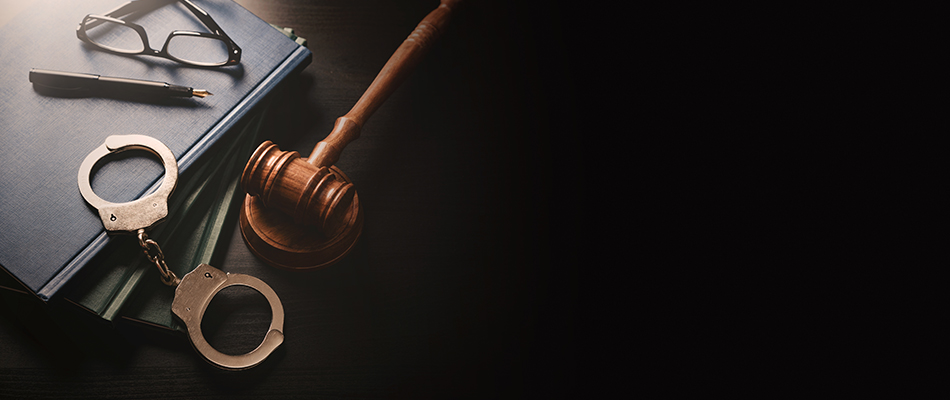What Does a Criminal Lawyer Do? Understanding Their Role in the Justice System

When someone is accused of a crime, their freedom, reputation, and future are on the line. In such cases, having a skilled criminal lawyer by your side can mean the difference between conviction and acquittal. Criminal lawyers play a vital role in protecting the rights of the accused and ensuring a fair trial. But what exactly do they do—and why is their work so critical?
In this article, we’ll break down the responsibilities, skills, and importance of criminal lawyers, shedding light on how they serve clients through every phase of the justice process.
The Core Role of a Criminal Lawyer
A criminal lawyer specializes in defending individuals and organizations charged with criminal conduct. Their job is to advocate for the accused, navigate the complexities of criminal law, and work to achieve the most favorable outcome possible—whether that’s a dismissal, reduced sentence, or acquittal.
Depending on the case, a criminal lawyer may act as:
- A defense attorney, representing the accused
- A prosecutor, representing the government
However, most criminal lawyers in private practice work as defense attorneys.
Key Responsibilities of a Criminal Defense Lawyer
A criminal defense lawyer’s duties cover a wide range of tasks, including:
1. Case Assessment and Strategy Building
Every case starts with a deep dive into the charges, the facts, and the evidence. A criminal lawyer evaluates the strengths and weaknesses of the prosecution’s case and builds a defense strategy accordingly. This may include challenging the legality of police conduct, questioning witness credibility, or identifying constitutional violations.
2. Client Counseling
Clients facing criminal charges are often scared and confused. A good criminal lawyer explains the legal process, potential penalties, and available options in clear terms. This helps clients make informed decisions about pleas, trials, or cooperation with authorities.
3. Legal Research and Motion Practice
Defense attorneys file motions to suppress evidence, dismiss charges, or compel discovery. These motions can dramatically affect the course of the case—sometimes even leading to complete dismissal if rights were violated.
4. Negotiating Plea Deals
Most criminal cases are resolved through plea bargains rather than trials. Criminal lawyers negotiate with prosecutors to reduce charges or recommend lighter sentences. These negotiations require legal skill, diplomacy, and a clear understanding of case strengths and weaknesses.
5. Courtroom Representation
Whether in pretrial hearings or full jury trials, a criminal lawyer represents the client in court. This includes delivering opening and closing statements, examining witnesses, objecting to improper questions, and presenting compelling evidence.
6. Sentencing Advocacy
If a client is found guilty or pleads guilty, a criminal lawyer advocates for fair sentencing. They may argue for probation, treatment programs, or reduced jail time based on mitigating factors like a clean record or family circumstances.
Types of Criminal Cases Handled
Criminal lawyers deal with a wide range of charges, from misdemeanors to felonies, including:
- DUI and drug offenses
- Assault and battery
- Theft and burglary
- White-collar crimes (fraud, embezzlement)
- Domestic violence
- Homicide and manslaughter
- Cybercrimes
Each type of case comes with its own set of legal challenges, procedural requirements, and potential penalties.
Skills Every Great Criminal Lawyer Needs
A top-notch criminal lawyer combines legal knowledge with interpersonal and strategic skills, such as:
- Analytical thinking – To identify weak spots in the prosecution’s case.
- Persuasiveness – To convince judges, juries, and prosecutors.
- Research skills – To find legal precedents and uncover new evidence.
- Emotional intelligence – To connect with jurors and support clients under stress.
- Communication skills – To clearly explain complex issues in court or to clients.
Why You Shouldn’t Face Criminal Charges Alone
Many people make the mistake of thinking they can handle a criminal case without legal representation—especially for “minor” charges. But the criminal justice system is incredibly complex, and even a small mistake can have life-altering consequences.
Here’s what a criminal lawyer can help you avoid:
- Involuntary guilty pleas
- Harsh or unjust sentencing
- A permanent criminal record
- Loss of professional licenses or immigration status
Hiring a criminal lawyer ensures your rights are protected from the very beginning. They will also help avoid self-incrimination, bad plea deals, or procedural errors that could harm your defense.
Choosing the Right Criminal Lawyer
When your freedom is at stake, you need a lawyer who is experienced, assertive, and dedicated to your case. Here’s what to look for:
- Specialization – They should focus on criminal defense, not general law.
- Track Record – Ask about past outcomes and courtroom experience.
- Communication – They should be responsive and explain things clearly.
- Trustworthiness – You need to feel confident placing your future in their hands.
What to Expect During the Legal Process
If you’re working with a criminal lawyer, here’s what the general process looks like:
- Arrest and Bail Hearing – Your lawyer may help you secure release or argue for lower bail.
- Arraignment – You’ll be formally charged and enter a plea.
- Pretrial Motions and Discovery – Evidence is shared, and motions are filed.
- Plea Bargain or Trial – Depending on your defense strategy, your case may end in a deal or go to trial.
- Sentencing or Appeal – If convicted, your lawyer can push for lighter sentencing or appeal the verdict.
The Stakes Are High—So Get the Help You Need
No one expects to be charged with a crime—but if it happens, your next steps are crucial. A criminal record can impact your job prospects, housing options, relationships, and overall quality of life. With a strong criminal lawyer guiding your defense, you stand a better chance at preserving your rights, reputation, and freedom.
Whether you’re facing a first-time misdemeanor or a serious felony charge, don’t go through it alone. Seek out a skilled legal advocate who will fight for you from arrest to verdict—and beyond.
